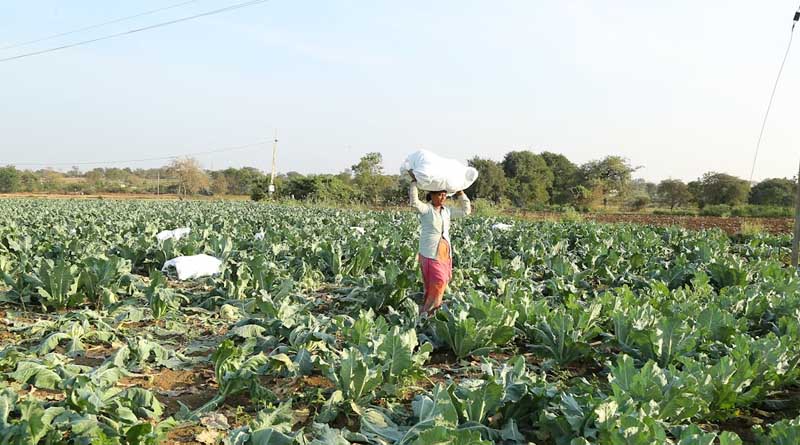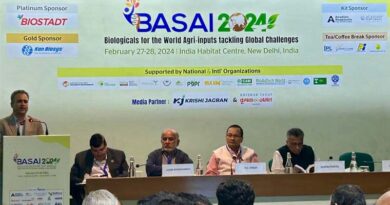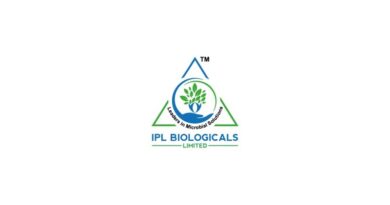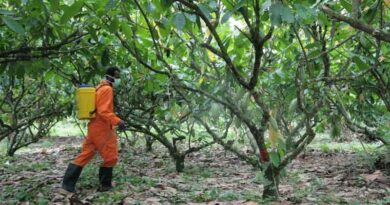Biologicals in Indian Agriculture: Navigating Regulatory Landscape
Guest Author: Harsh Vardhan Bhagchandka, President, IPL Biologicals Ltd
14 March 2024, New Delhi: In recent years, biologicals have emerged as a viable substitute for conventional agricultural inputs, presenting options for increasing crop output while lowering the impact on the environment. The use of biologicals offers a significant opportunity to address pressing concerns including pesticide residue, water pollution, and soil degradation in the context of India’s agriculture, which is distinguished by its size and diversity. However, stakeholders along the agricultural value chain face both opportunities and challenges when navigating the legal frameworks controlling these innovative inputs. Therefore, it is crucial to comprehend the biological environment in Indian agriculture, including the complexities of regulations and the best strategies to incorporate biologicals into farming techniques. According to Markets And Markets, with a compound annual growth rate (CAGR) of 13.8%, the value of the agricultural biologicals market is expected to rise from $14.6 billion in 2023 to $27.9 billion by 2028.

The Rise of Biologicals: A Sustainable Solution
Biologicals encompass a range of products derived from natural sources such as microbes, plant extracts, and organic matter. In contrast to artificial chemicals, biologicals support soil fertility and plant health while providing a targeted strategy for the management of pests and diseases. Furthermore, they are a desirable alternative for sustainable agriculture as they usually have a lesser environmental impact.
In India, where millions of people rely on agriculture as their primary source of income, the use of biologicals holds promise for resolving major issues that farmers confront. It provides a range of benefits that are in line with the country’s agricultural goals, from lowering chemical residues in food and water to increasing crop resilience to climate change.
Current Regulatory Framework
The Central Insecticide Board and Registration Committee, a division of the Ministry of Agriculture’s Directorate of Plant Quarantine, is in charge of India’s biological regulations. Biopesticides are governed by the Insecticides Act of 1968 and need to be registered with the Central Insecticide Board (CIB). There are different registration requirements for different categories, such as Entomopathogenic Fungi, Botanical Pesticides, Antagonistic Bacteria, and Antagonistic Fungi. Any microbial strain created or distributed to control pests and diseases must abide by these rules.
Adoption and Commercialization
Though fundamentally different in nature, biopesticides and biocontrol agents are nevertheless governed in India within legislative frameworks originally intended for chemical pesticides. Regulations designed for synthetic chemicals are the cause of this discrepancy, as they don’t sufficiently address the unique characteristics and threats related to biologicals. As a result, obtaining regulatory approval continues to be a major barrier to biopesticide commercialization. The process is further complicated by the interactions between stakeholders, including scientists, regulators, marketers, and end users, which can lead to disputes and confusion. Thus, the necessity for specialized standards and efficient processes is highlighted by difficulties with importing/exporting obstacles and navigating regulatory processes, especially when living organisms are involved.
Steps to Streamline the Regulatory Process
The government and regulatory bodies acknowledge that biopesticides play an integral part in promoting sustainable agriculture, which is in line with the principles of environmental conservation, economic productivity, and social acceptance. With the recognition of the benefits of biopesticides, initiatives are being made to establish new regulations, such as the Consortium of Bio-pesticides and updated section 9 3 registration processes. To further enhance adoption, regulators can focus on aspects like extending shelf life claims, increasing CFU claims, and eliminating redundant “Me Too Registration procedures” from existing guidelines.
Paving the Way for Sustainable Agriculture in India!
The use of biologicals offers a sustainable solution for addressing environmental issues and boosting productivity as India’s agricultural landscape changes. To enable their widespread adoption, regulatory frameworks must take into account the unique characteristics of biologicals. Furthermore, by streamlining processes and encouraging stakeholder collaboration, India can maximize the potential of biologicals to ensure a resilient and sustainable agricultural future.
Also Read: No pump and no hassle with the new Demand® CS insecticide 10-gallon drum from Syngenta
(For Latest Agriculture News & Updates, follow Krishak Jagat on Google News)














